Bees and other pollinators are crucial to the health and productivity of our gardens, farms, and natural spaces. However, these vital insects are facing a range of challenges, including habitat loss, pesticide use, and diseases. If you want to help protect bees and other pollinators, there are several actions you can take without becoming a beekeeper. Here are 10 easy ideas:

- Plant a variety of flowering plants in your garden or yard. Bees and other pollinators need a range of plants to feed on, so try to include a mix of native plants, herbs, and flowering shrubs and trees. This will provide a consistent source of food for the bees, helping to keep them healthy and strong.
- Avoid using pesticides and other chemicals in your garden. Many pesticides are toxic to bees and other pollinators and can harm or kill them. Instead of using chemicals, try natural alternatives such as companion planting and homemade pest deterrents.
- Provide a source of water for bees and other pollinators. Bees and other insects need water to survive, so try to provide a shallow dish with pebbles or sticks for them to land on. This will help to keep the bees hydrated, especially during hot weather.
- Support local beekeepers and buy locally-produced honey. Buying local honey helps to support local beekeepers and keep bees healthy. You’ll also be supporting local businesses.
- Educate yourself and others about the importance of bees and other pollinators. Many people don’t realize the vital role these insects play in our ecosystem, so sharing information and raising awareness can help to protect them. There are many resources available online and in books to learn more about bees and other pollinators.
- Support organizations that work to protect bees and other pollinators. Donate to or volunteer for local or national organizations that protect these important insects.
- Create a bee-friendly environment in your community. Encourage your neighbors, local businesses, and community organizations to plant flowering plants and provide water for bees and other pollinators. This will create a welcoming environment for these insects, helping to support their health and survival.
- Avoid disturbing or harming bees and other insects. If you do come into contact with a bee or other insect, try to remain calm and avoid swatting or squashing it.
- Join a local beekeeping association or club. These organizations are a great way to learn more about bees and connect with other beekeepers in your area. You don’t have to keep bees to participate.
- Advocate for policies that protect bees and other pollinators. Contact your elected officials to support legislation that protects their habitats, limits the use of harmful pesticides, or provides funding for research and conservation efforts.

There are several ways you can help support bees and other pollinators without becoming a beekeeper. Each of these actions can make a positive impact on the health and well-being of these important insects. So which of these actions are you willing to take to help support bees and other pollinators? Let us know in the comments and join the conversation!



